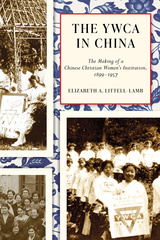
Reforming Japan
The Woman’s Christian Temperance Union in the Meiji Period
In 1902 members of the Japanese Woman’s Christian TemperanceUnion (WCTU) submitted a petition to the National Diet to abolish thecustom of rewarding good deeds and patriotic service with the bestowalof sake cups. Alcohol production and consumption, its members argued,harmed individuals, endangered public welfare, and wasted vitalresources.
The sake cup petition was only one initiative in a wide-rangingprogram to reform public and private behaviour in Japan. Between 1886and 1912, the WCTU launched campaigns to eliminate prostitution,eradicate drinking and smoking, spread Christianity, and improve thelives of women. As Elizabeth Dorn Lublin shows, members did notpassively accept and propagate government policy but felt a duty toshape it by defining social problems and influencing opinion. Certaintheir beliefs and reforms were essential to Japan's advancement,members couched their calls for change in the rhetorical language ofnational progress. Ultimately, the WCTU’s activism beliesreceived notions of women’s public involvement and politicalengagement in Meiji Japan.
This fascinating study of women bound by God, home, and country willappeal to students and scholars of Japanese History, religious studies,and gender studies.
This book will appeal to students and scholars of Japanese history,
gender studies, and religious studies.
The author makes a valuable contribution to Japanese and feminist history...revising the traditional view that women were not involved in politics during this period. Highly recommended. All collections in modern Japanese history and the history of feminism in East Asia
This excellent work of scholarship addresses a sorely neglected aspect of Japanese and feminist history. Reforming Japan is very readable and its arguments are convincing. Lublin has thoroughly mined many Japanese-language primary sources and has constructed a highly sophisticated line of argument. She has succeeded in what the late Mikiso Hane used to call 'resurrecting the forgotten women's voices.' This book will be very well received by Japanese historians. It deserves to be on every scholar’s bookshelf.
Reforming Japan is a very fine book. Based on an impressive array of Japanese-language sources, Lublin’s work is a major English-language study about the initial quarter-century of the Japanese WCTU and the important role played by its leaders in the attempt to influence both public opinion and government into introducing social reforms that would benefit women and children in the new Japan.
Illustrations
Acknowledgments
Introduction
Part 1: The WCTU in Meiji Japan: An OrganizationalHistory
1 The Founding of the WCTU in Japan:1886
2 The Tumultuous Early Years of the Tokyo WCTU:1886-92
3 The Organization and Development of the Japan WCTU:1892-1912
Part 2: Under the Guise of National Strengthening and“Good” Citizenship: Pillars of the WCTU’s ReformProgram
4 The Fight against Prostitution
5 The Struggle to Create a Sober Society
6 Imperial Loyalty and Patriotic Service JapanWCTU-Style
Epilogue
Bibliography
Index







